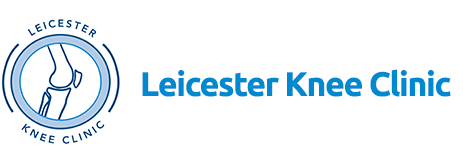ACL Reconstruction Surgeon in Leicester

Sports that involve twisting or overextending of the knee can cause ACL injuries due to a sudden directional change, landing incorrectly from a jump or a direct blow to the side of the knee. Mr. Ghosh provides diagnosis and minimally-invasive ACL reconstruction surgery in Leicester. Mr. Ghosh also provides highly specialized care during and after the surgery. Contact Mr. Ghosh's office for an appointment today.

What is an ACL Reconstruction?
ACL (Anterior Cruciate Ligament) reconstruction is a commonly performed surgical procedure. With recent advances in arthroscopic surgery, it can now be performed with minimal incision and low complication rates.
The advancements in arthroscopic surgery make it easy for surgeons to view and work on knee structures through small incisions. The reconstruction of the torn ligament can be performed at the same time as the diagnostic arthroscopy with fewer surgical risks.
The surgery can usually be performed as a daycase procedure, which means you may be discharged to go home on the same day as the procedure or the next day.
Anterior Cruciate Ligament Tears
The anterior cruciate ligament (ACL) is one of the major stabilizing ligaments in the knee. It is a strong rope-like structure located in the centre of the knee, running from the femur to the tibia. When this ligament tears, unfortunately, it does not heal on its own, and often leads to the feeling of instability in the knee.
Causes of an ACL Injury
An ACL injury most commonly occurs during sports that involve twisting or overextending of your knee. An ACL can be injured in several ways:
- Sudden directional change
- Slowing down while running
- Landing incorrectly from a jump
- Direct blow to the side of your knee, such as during a football tackle
Symptoms of ACL Injury
When you injure your ACL, you might hear a loud "pop" sound and may feel the knee buckle. Within a few hours after an ACL injury, your knee may swell due to bleeding from vessels within the torn ligament. Afterwards you may notice that the knee feels unstable or seems to give way, especially when trying to change direction on the knee.
Diagnosis of an ACL Injury
An ACL injury can be diagnosed with a thorough physical examination of the knee and diagnostic tests such as an MRI scan. X-rays may be needed to rule out any fractures.
If you would like to have additional information on the treatment of ACL injury or would like to learn more about ACL Reconstruction, please contact Mr. Ghosh.
Related Topics:
- ACL Reconstruction
- Cartilage Replacement
- Distal Femoral Osteotomy
- High Tibial Osteotomy
- Knee Arthroscopy
- Knee Osteotomy
- Meniscal Surgery
- Minimally Invasive Knee Joint Replacement
- Multiligament Reconstruction of the Knee
- Patellar Tendon Repair
- Patellofemoral Knee Replacement
- Revision Knee Replacement
- Tibial Tubercle Osteotomy
- Total Knee Replacement
- Unicompartmental Knee Replacement
- What is New in Knee Replacement
